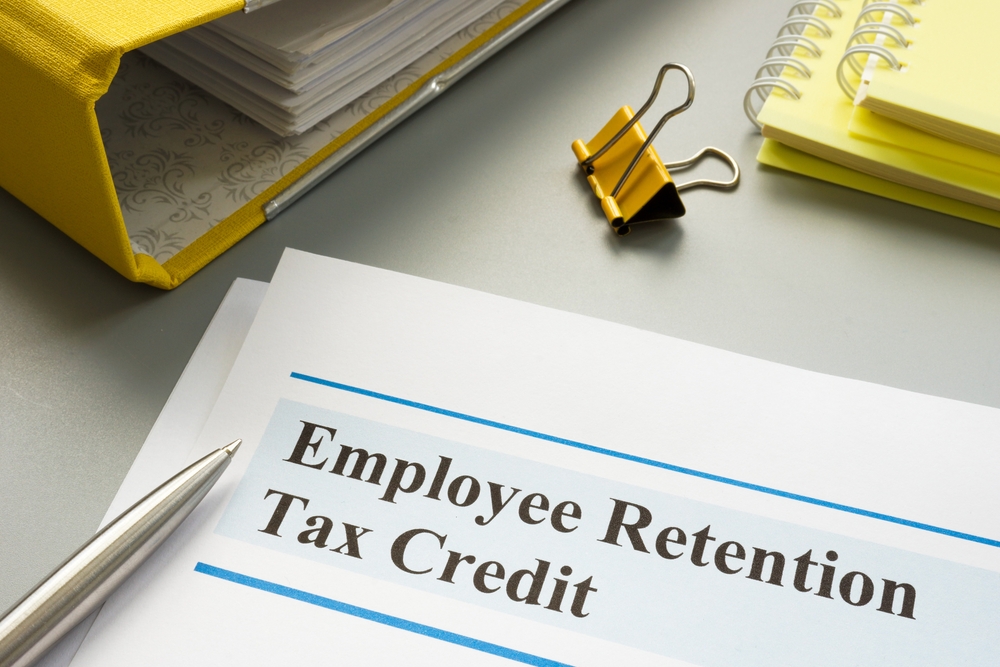Protecting Your Business From Widespread ERC Scams
Protecting Your Business From Widespread ERC Scams
Misinformation and widespread scams have created pitfalls for businesses regarding the employee retention credit
The Employee Retention Credit (ERC) has been one of the most discussed tax topics of 2023. Although originally intended to help employers struggling during the COVID-19 pandemic, this program was put on hold indefinitely by the Internal Revenue Service (IRS) due to the high number of claims from ineligible employers, many of whom were taken in by scams. The information below can help owners and employers protect their businesses, both from scams and from IRS penalties.
What is the ERC?
The ERC was signed into law as part of the Coronavirus Aid, Relief and Economic Security (CARES) Act in 2020. It allows eligible businesses affected by COVID-19 to receive a refundable credit on certain employment taxes. If the business meets the IRS’ criteria, it can receive a credit equal to 50% for 2020 and 70% for 2021 of the qualified wages it paid to each employee. However, not all businesses are eligible to receive the credit.
Eligibility for the ERC
To qualify for the ERC, a business must have paid employees qualified wages between March 13, 2020, and Dec. 31, 2021, not exceeding $10,000 for each employee per quarter. The business must also have:
- Experienced a “significant decline in gross receipts” in 2020 or the first three quarters of 2021; or
- Been fully or partially suspended due to a government order in 2020 or the first three quarters of 2021; or
- Qualified as a “recovery startup business.”
To qualify based on a “significant decline in gross receipts,” the business’s gross receipts must be less than 50% in 2020, or less than 80% in 2021, of its gross receipts in 2019. To qualify as a “recovery startup business,” a business must have started after Feb. 15, 2020, and must have annual gross receipts of less than $1 million on average.
Scams and IRS Action
Although the ERC was initially intended to help businesses, a growing number of scams created dangerous traps for business owners. Scammers flooded television, social media and the radio with ads related to the ERC, and many even sent targeted ads via email and text. The IRS began warning the public about potential scams as early as fall 2022. In March 2023, ERC scams were number one on the IRS’s “Dirty Dozen” list, its annual warning to the public about the top 12 tax scams to be aware of in the coming year.
By Sept. 14, 2023, the IRS had become so concerned about these scams and the subsequent applications from ineligible businesses that it stopped accepting new ERC applications altogether. This ban is expected to last until at least Dec. 31 of this year. Although the IRS is still processing the applications it received prior to Sept. 14, it is taking a more serious look at these applications to root out claims from ineligible businesses. This increased scrutiny is expected to double the time it takes to receive a response to an application.
As of July 2023, the IRS had discovered more than $2.8 billion in potentially fraudulent ERC claims, and it is currently considering criminal prosecution in hundreds of such cases. Ineligible businesses that received ERC money may be required to return the money to the government and could also be subject to additional penalties and interest. The IRS has the ability to impose a 20% penalty for negligent tax underpayment and a 75% penalty for fraudulent underpayment. It may also bring criminal actions for fraud, which can result in a felony conviction punishable by up to $100,000 for individuals or $500,000 for corporations and up to 5 years in prison.
How Businesses Can Protect from Scammers and Penalties
Fortunately, businesses at each stage of the ERC process can take action to protect themselves from scams and potential IRS penalties. Although the IRS is not currently accepting applications for new employee retention credits, business owners should consult with a tax professional before filing a claim if the application period opens again. Watch out for ERC scams and behaviors that could raise red flags, like: communications from unknown people or organizations; promises of quick refunds; requests for large, upfront payments or percentages of the credit amount; and failure to mention the ERC’s important limitations, like claims that all businesses are eligible to receive credits.
Even businesses that have already filed an ERC claim have options to potentially avoid IRS penalties. Because of the increased scrutiny around pending claims, businesses should keep any supporting documentation on file, including evidence of the required decline in gross receipts and records of wages paid to each employee. The IRS is also currently offering businesses with pending claims the chance to withdraw the claims if they have any concerns about their eligibility. For businesses that have already received their credit, the IRS is preparing a settlement program that will allow businesses to repay credits they believe may have been granted in error. Cooperation with these IRS initiatives can be an excellent tool for businesses unsure about their claims or refunds.
Next Steps
Although the ERC provided much needed assistance to businesses affected by COVID-19, misinformation and widespread scams have created many pitfalls for unsuspecting business owners. By consulting with tax professionals and heeding warnings from the IRS, owners can protect their businesses from falling victim to scams and potential civil and criminal penalties.
This article was originally shared on Business Alabama on December 13, 2023 and is republished here with permission from the publication.







